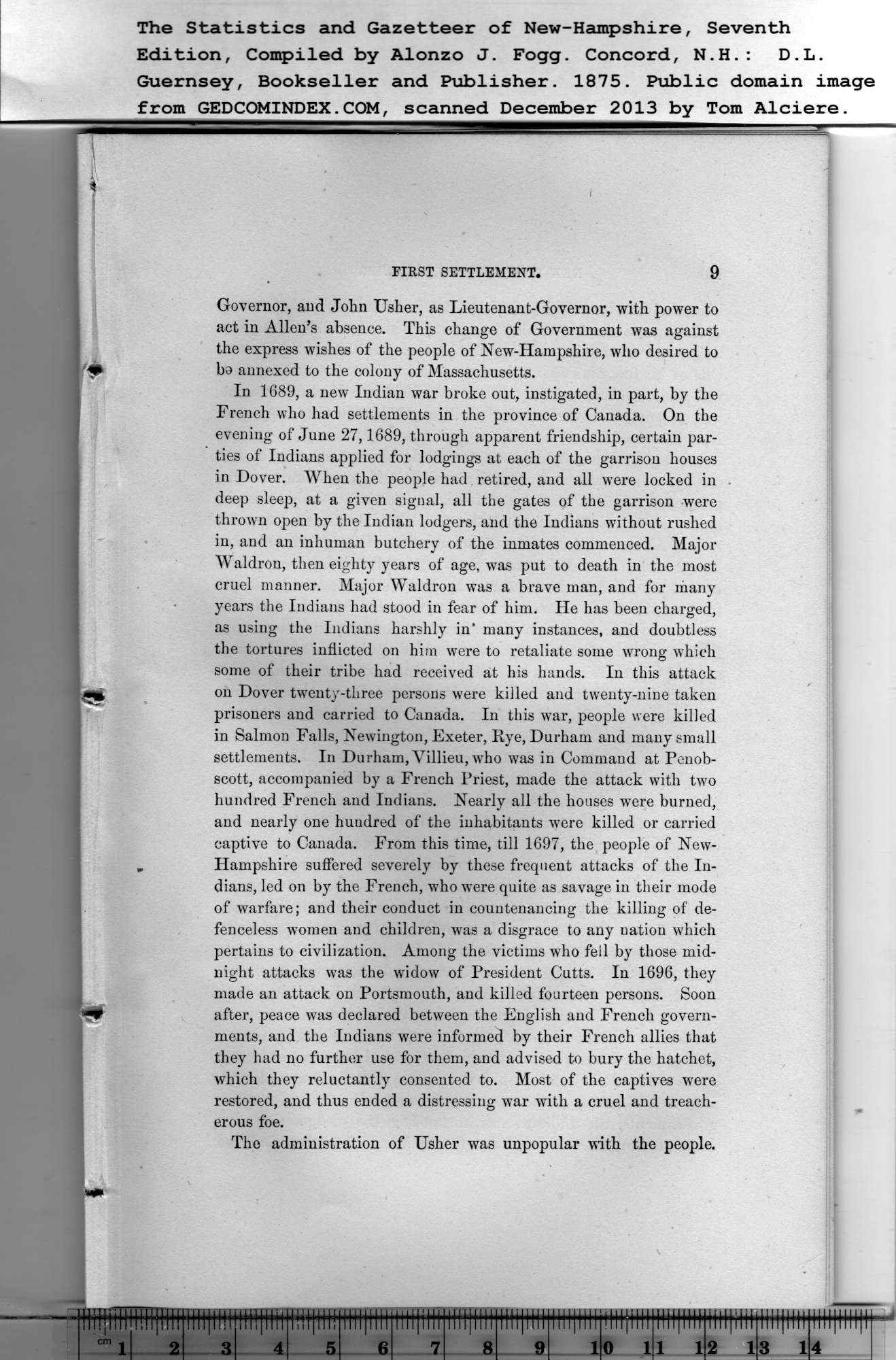|
FIRST SETTLEMENT. 9
Governor, and John Usher, as Lieutenant-Governor, with power to
act in Allen’s absence. This change of Government was against
the express wishes of the people of New-Hampshire, who desired to
be annexed to the colony of Massachusetts.
In 1689, a new Indian war broke out, instigated, in part, by the
French who had settlements in the province of Canada. On the
evening of June 27,1689, through apparent friendship, certain par-
ties of Indians applied for lodgings at each of the garrison houses
in Dover. When the people had retired, and all were locked in
deep sleep, at a given signal, all the gates of the garrison were
thrown open by the Indian lodgers, and the Indians without rushed
in, and an inhuman butchery of the inmates commenced. Major
Waldron, then eighty years of age, was put to death in the most
cruel manner. Major Waldron was a brave man, and for many
years the Indians had stood in fear of him. He has been charged,
as using the Indians harshly in many instances, and doubtless
the tortures inflicted on him were to retaliate some wrong which
some of their tribe had received at his hands. In this attack
on Dover twenty-three persons were killed and twenty-nine taken
prisoners and carried to Canada. In this war, people were killed
in Salmon Falls, Newington, Exeter, Rye, Durham and many small
settlements. In Durham, Villieu, who was in Command at Penob-
scott, accompanied by a French Priest, made the attack with two
hundred French and Indians. Nearly all the houses were burned,
and nearly one hundred of the inhabitants were killed or carried
captive to Canada. From this time, till 1697, the people of New-
_ Hampshire suffered severely by these frequent attacks of the In-
dians, led on by the French, who were quite as savage in their mode
of warfare; and their conduct in countenancing the killing of de-
fenceless women and children, was a disgrace to any nation which
pertains to civilization. Among the victims who fell by those mid-
night attacks was the widow of President Cutts. In 1696, they
made an attack on Portsmouth, and killed fourteen persons. Soon
after, peace was declared between the English and French govern-
ments, and the Indians were informed by their French allies that
they had no further use for them, and advised to bury the hatchet,
which they reluctantly consented to. Most of the captives were
restored, and thus ended a distressing war with a cruel and treach-
erous foe.
The administration of Usher was unpopular with the people.
PREVIOUS PAGE ... NEXT PAGE
This page was written in HTML using a program written in Python 3.2
|
